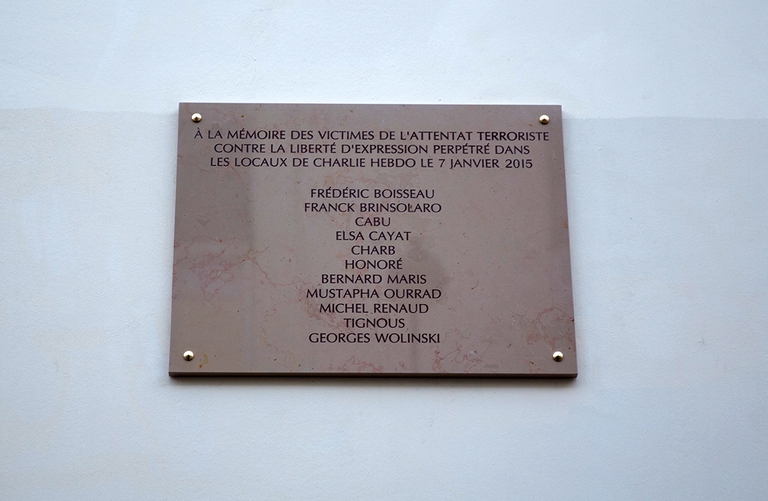
As per tradition after 12 years India held Mahakumbh, the world’s largest spiritual congregation that has been attracting pilgrims from across the globe.
Nel 2015 solo un giornalista su tre è morto perché si trovava in un teatro di guerra, in una zona ad alto rischio. Gli altri sono morti in circostanze non identificate o, addirittura, sul posto di lavoro: in redazione.
“Journalists are killed to be silenced, to be scared. This means they still play a crucial role,” said Giovanni De Mauro, director of the Italian newspaper Internazionale, as a comment to the news according to which 110 journalists were killed across the world in 2015. Data are provided by Reporters Without Borders (RSF) and show a significant increase, representing the highest figure registered over the past decade.
The most dangerous countries for journalists are those involved in conflicts, in particular Iraq and Syria. But it’s only an apparently obvious statement. In 2015, in fact, only 1 in 3 journalists were killed while reporting armed conflicts, compared to 2 in 3 registered in 2014. A demonstration of this is the fact that the third country for the number of journalists killed is France, a country traumatised by terrorism, where the terror attack of 7 January 2015 upset the entire world. Eight journalists of the satirical magazine Charlie Hebdo were killed in their workplace, the newsroom. A dreadful war act – to press freedom – carried out where it wasn’t supposed to ever get to. As the current Director of the French magazine and cartoonist Riss said: “Our journalists have never been sent to countries at war, but on 7 January the war came to us”.
“Nissan Ibrahim” Syrian activist from #Raqqa has been executed in Raqqa city by #IS #RIP . pic.twitter.com/KM8dEILMtr
— الرقة تذبح بصمت (@Raqqa_SL) 2 Gennaio 2016
Among the 110 victims there’s the journalist Ruqia Hassan, 30-year-old woman that, under the pen name Nissan Ibrahim, daily reported on social networks the life of the city of Raqqa, Syria, occupied by militants of the Islamic State. According to some activists, Hassan was considered guilty of espionage by the murderers. The fact took place in September, but the news of her death started being shared in early 2016. The Syrian journalist, which studied philosophy at the University of Aleppo, refused to leave Raqqa after that terrorists occupied it, and decided to continue writing on everything happening there, including the bombs dropped by Western countries and Russia to stop the advance of the extremist Islamist group.
In a world where publishing and journalism seem to be brought to their knees due to the lack of money and funds needed to tell what happens in the world’s most remote and forgotten places, the perseverance reporters are targeted with is a clear demonstration that journalism is alive and frightens. It’s scarier than all menaces, crimes, and bombs. Pens or keyboards are the most effective weapons to stop those who kill or silence others. Bravery can’t be bought and even if journalists find it hard to make ends meet, the number of people who decide to join this world to protect and enhance press freedom, and to denounce oppressions and injustice is on the rise.
Siamo anche su WhatsApp. Segui il canale ufficiale LifeGate per restare aggiornata, aggiornato sulle ultime notizie e sulle nostre attività.
![]()
Quest'opera è distribuita con Licenza Creative Commons Attribuzione - Non commerciale - Non opere derivate 4.0 Internazionale.
As per tradition after 12 years India held Mahakumbh, the world’s largest spiritual congregation that has been attracting pilgrims from across the globe.
Workers in tea gardens of West Bengal, India, that produces Ctc tea for domestic consumption complain that they have been devoid of basic facilities while political parties make hollow promises during every elections which are never fulfilled.
India is in the middle of the elections, but sadly none of the politicians have uttered a word on man-animal conflict that has been devouring several lives every year.
Manipur, a state in north-east India, is still reeling under the tremors of violence that broke out last year devouring lives and paralyzing the economy.
The government of Tanzania is currently planning to evict more than 80.000 indigenous Maasai people from their ancenstral land
A new UNU-INWEH report on the global bottled water industry reveals the massive scale of this market and the lack of strict quality controls.
Isatou Ceesay founded a social enterprise that is helping to fight plastic pollution and empowering women and young people to gain economic independence.
In 2020, Mihela Hladin made a radical decision that many, in recent times, have probably considered. This is her story, with photos by Matt Audiffret.
The Brazilian government has started evicting illegal gold miners, responsible for the health emergency that has hit the Yanomami people.









